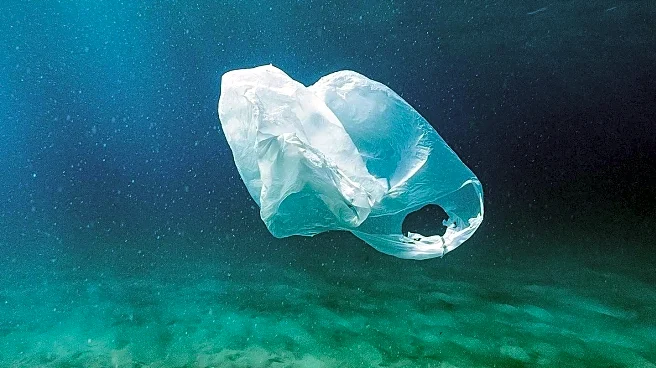What's Happening?
Concerns about microplastics in consumer products have extended to underwear, with experts discussing potential health risks. Textiles often contain synthetic materials and chemicals, including plastics,
which can leach into the skin. Common fabrics like spandex, polyester, and nylon may contain chemicals used in manufacturing and finishing processes. These chemicals can cause skin irritation and have been linked to negative effects on the liver, kidneys, and nervous system. Experts recommend choosing underwear made from natural fibers like cotton to minimize exposure.
Why It's Important?
The presence of plastics in underwear raises awareness about the broader issue of microplastics in consumer products. As consumers become more conscious of potential health risks, there may be increased demand for clothing made from natural fibers and free from harmful chemicals. This shift could drive changes in the textile industry, encouraging manufacturers to prioritize sustainable and safe materials. Understanding the risks associated with microplastics can help consumers make informed choices about their clothing and reduce exposure to potentially harmful substances.
What's Next?
Consumers may seek out clothing brands that prioritize transparency and sustainability, opting for products made from organic cotton and other natural fibers. As awareness of microplastics grows, there may be increased research into the health impacts of exposure and efforts to develop safer textile manufacturing processes. Regulatory bodies could implement stricter guidelines for chemical use in clothing production, promoting safer alternatives. The focus on reducing microplastic exposure may also extend to other consumer products, influencing industry practices and consumer behavior.
Beyond the Headlines
The discussion about plastics in underwear highlights broader environmental and health concerns related to microplastics. As research continues to explore the impact of microplastics on human health and ecosystems, there may be increased advocacy for reducing plastic use and improving waste management. This issue also underscores the importance of consumer education and awareness, empowering individuals to make choices that align with their values and health priorities. The textile industry's response to these concerns could lead to significant shifts in production practices and sustainability efforts.










